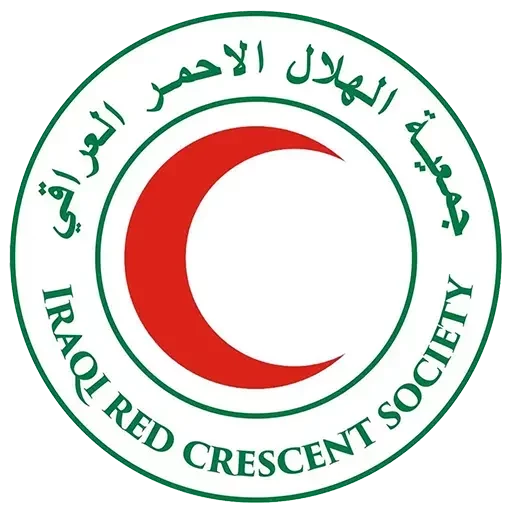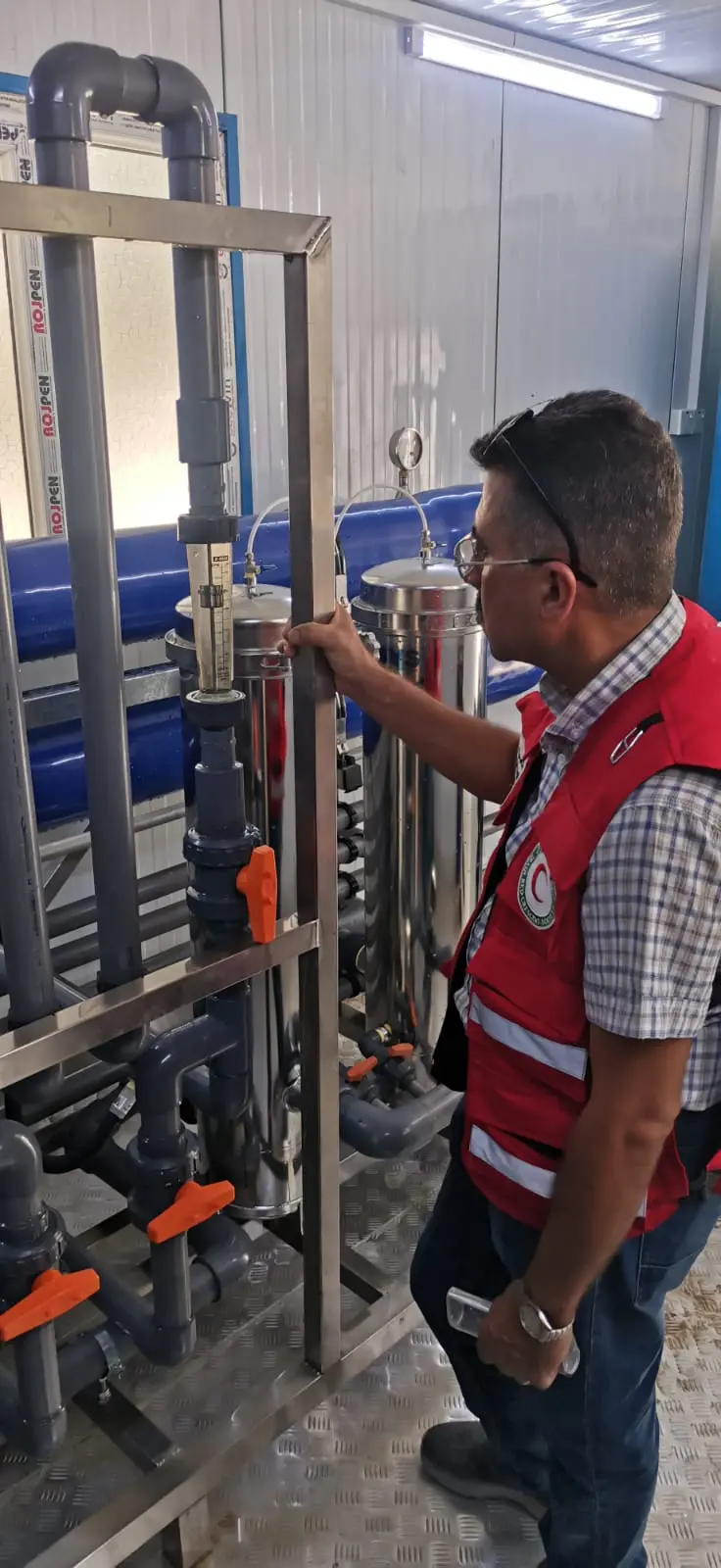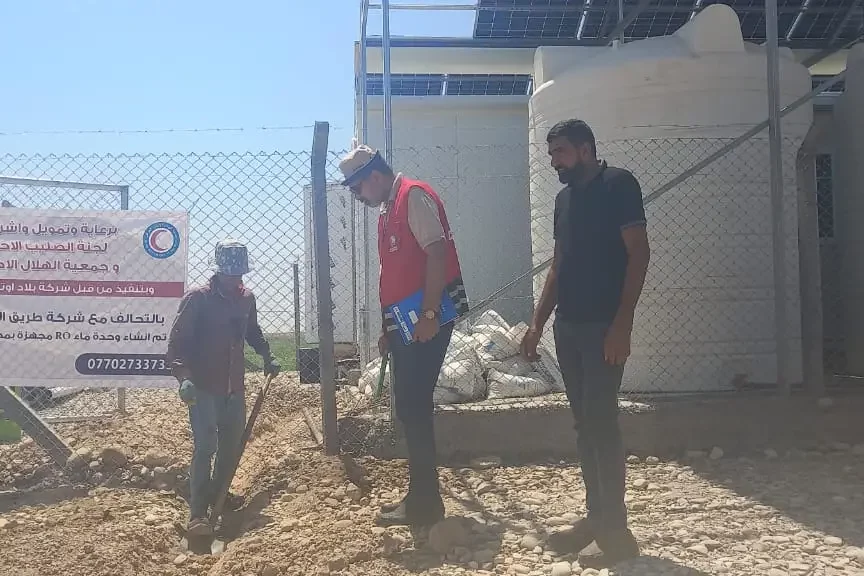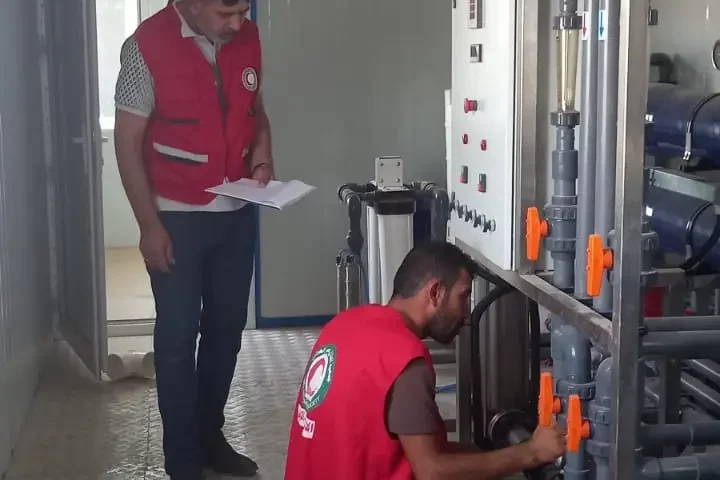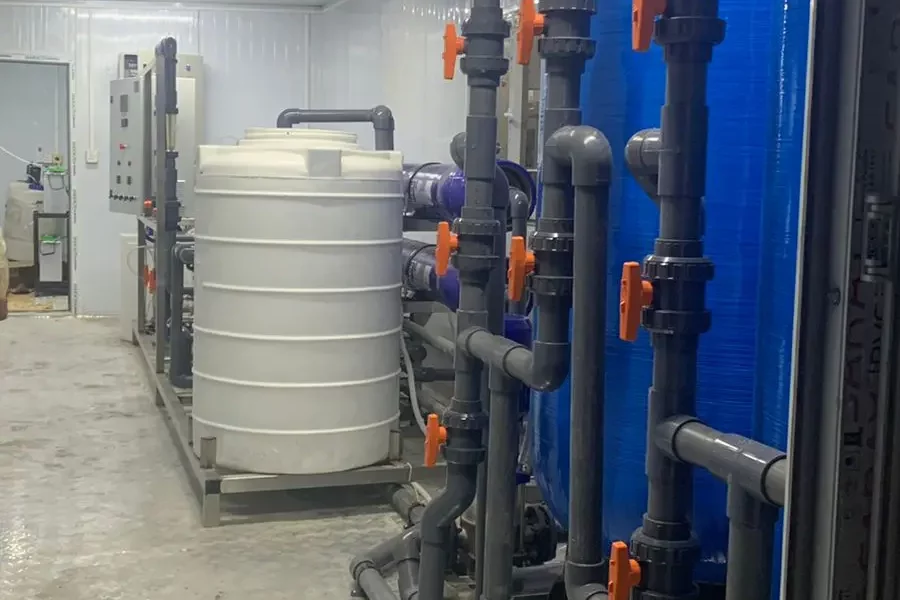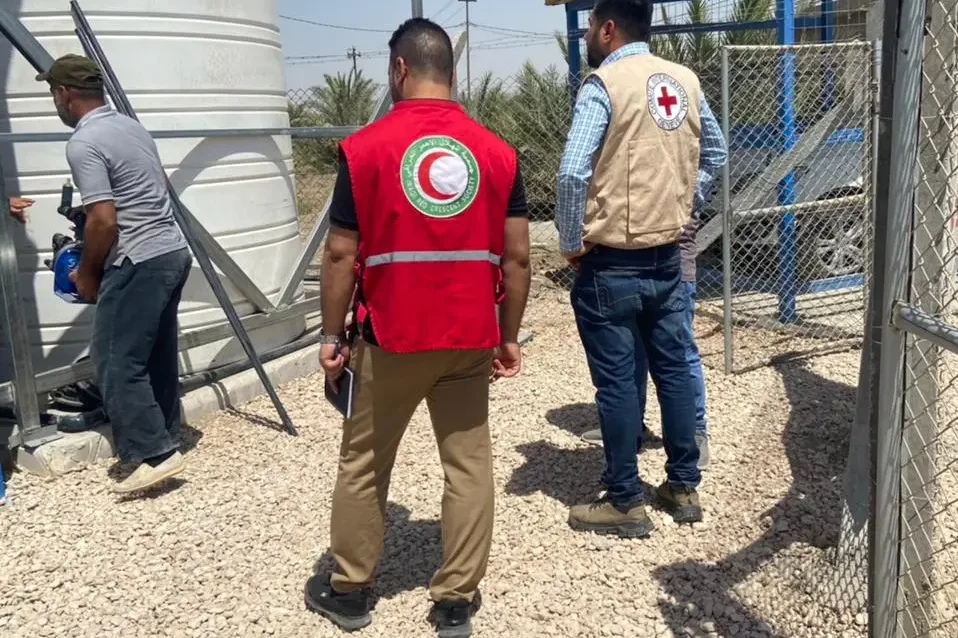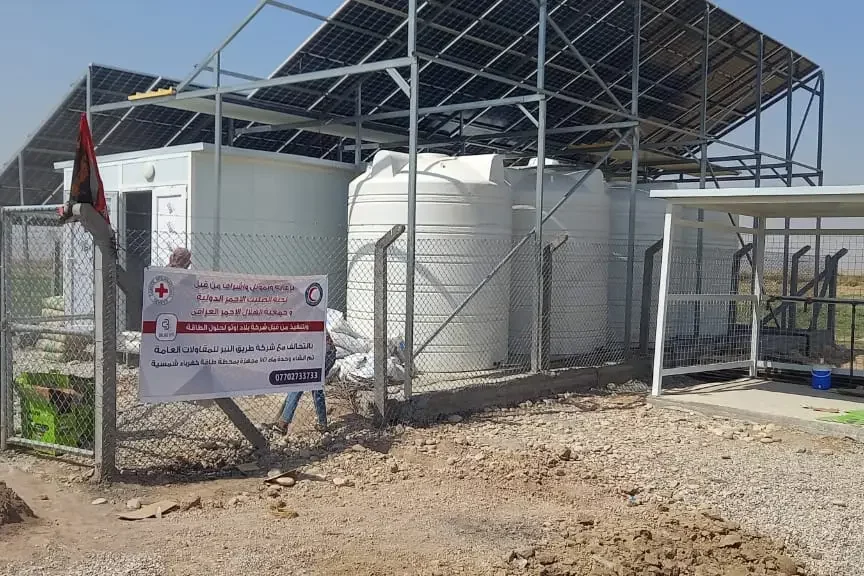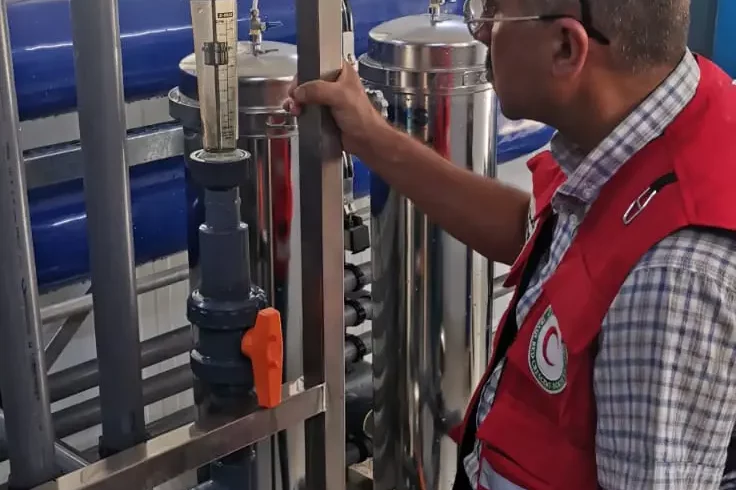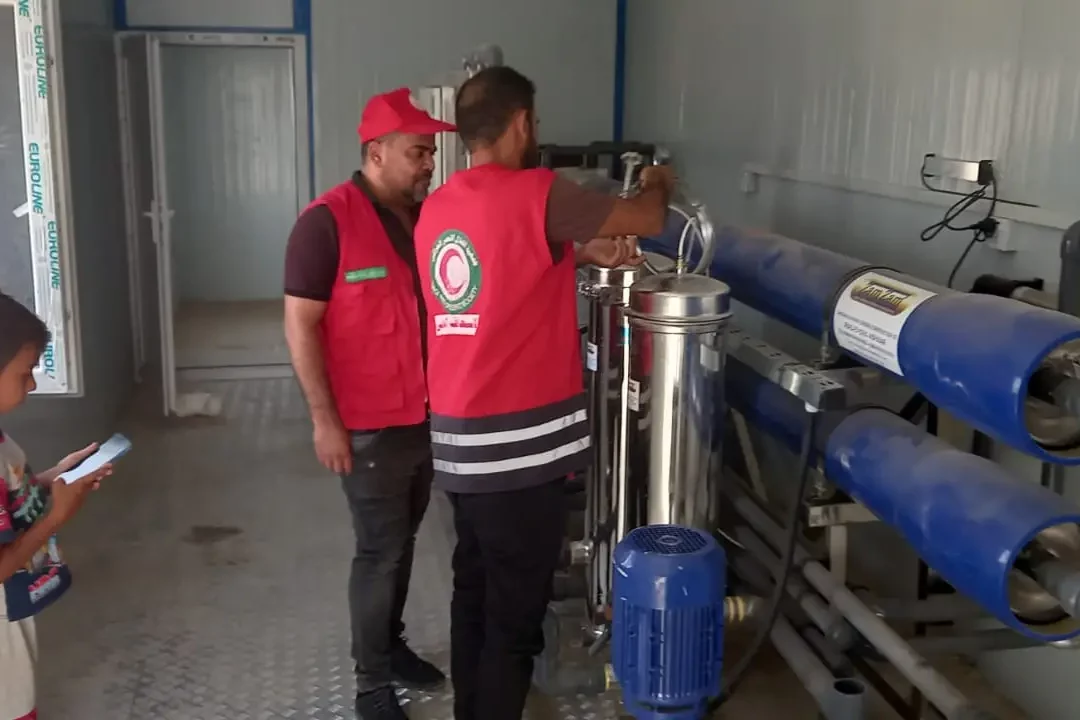Iraqi Red Crescent
Provides potable water for more than 2,500 people each day
Desalination facilities are built by the Iraqi Red Crescent to combat climate change.
Climate and environmental research present gloomy scenarios about the nation’s susceptibility to drought, severe water shortages, and the fact that water resources do not meet the population’s basic demands.
Numerous studies have found a connection between climate change and the occurrence of droughts in recent years, particularly when rain has been scarce and river water levels have fallen.
In response to this gloomy scenario, new ideas evolved to address the situation using cutting-edge water technology and sophisticated methods for treating fresh water, which offer numerous alternatives to protect people from the threat of drought and water scarcity.
The Iraqi Red Crescent Society focused on creating a long-term plan to discover practical ways to lessen the detrimental effects and ramifications of the water scarcity situation in order to deal with the drought crisis and climate changes.
The International Committee of the Red Cross and Red Crescent helped the Iraqi Red Crescent complete the building and operation of five desalination facilities in four governorates.
The units were divided into two units in Wasit governorate’s Dujaili and Sheikh Saad districts, one unit in each of Babylon governorate’s Mahaweel district, Diwaniyah governorate’s Shafi’iyah district, and Muthanna governorate, according to Nawar Abdul-Qader, director of structure and rehabilitation department.
“The areas in which the units were installed were chosen according to certain criteria, such as population numbers, the amount of water available for each person, the quality of used water, the economic consequences of the drought crisis, as well as measuring the incidence of diseases related to polluted water,” said Abdel-Qader.
“The installation and operation of these units is the first phase of the project,” he continued, “and the production capacity of each station is (5 cubic meters per hour), and 4 of these units operate on solar energy as it is a sustainable source of energy, the number of beneficiaries is (2500) people per day for each unit, two new facilities, one in the governorates of Al-Diwaniyah in Al-Kifl district and the other in the governorate of Babylon in the western district of Al-Hamza, will each have a production capacity of up to 2 cubic meters per hour.
In order to act as water distribution centers, Mr. Qader continued that (39) tanks with a capacity of (5000 liters) have been erected, water trucks will deliver water from the units to these tanks, and these tanks are regularly maintained in collaboration with the water directorates.”
Desalination units have been built as part of the Iraqi Red Crescent project to fight drought and a lack of water, this project also included giving out 2750 health kits to the families most affected by the drought crisis in the governorates of Nineveh, Diyala, Babil, Diwaniyah, Basra, and Dhi Qar.
In addition to allocating two (2) tiny tanks for each household to conserve potable water, there are enough cleaning, sterilizers, and washing powders to last a family of sixteen (16) for three (3) months.
